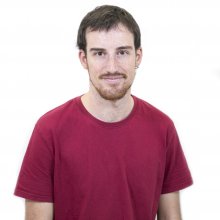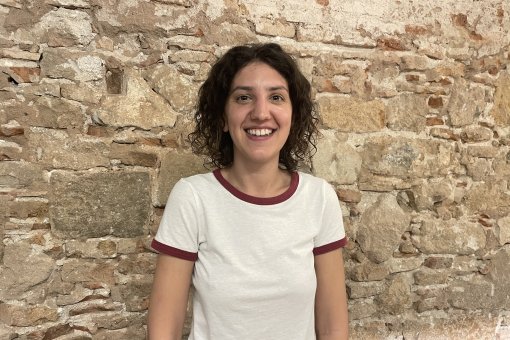Images
Oriol Pich is a PhD student in IRB Barcelona’s Biomedical Genomics Laboratory, led by Núria López-Bigas. After being awarded a degree in Medicine (Bachelor in Surgery - MBBS) from the University of Barcelona in 2016 and a Bachelor of Business Administration by the Open University of Catalonia (UOC) in 2017, he decided to pursue a PhD in Computational Biology at IRB Barcelona. He thinks that big data in biology will have an impact on patients’ welfare and feels that he could help to bridge the two fields.
His main topic of interest is cancer genomics, whereby using next-generation sequencing data from thousands of tumors he has focused on precision medicine, the effects of chemotherapies on mutations in the cells of treated patients, and basic biological science that helps us answer fundamental questions such as why our DNA is the way it is. Oriol defines himself as a very hard-working person with a passion for medicine and science, always eager to learn about different topics and ready for new challenges.
“This is is a great example of how collaborative science, where scientists with expertise in distinct areas of biology work together, can move science further compared to an individual approach”.
Tell us a bit about the article in Nature that has just been published with you as a contributing author.
The paper, entitled "Pervasive lesion segregation shapes cancer genome evolution", describes how lesions in DNA (caused by agents such as UV-light or chemotherapies) do not disappear after the cell divides, but remain in the DNA, causing mutations in following generations. This process, which we named lesion segregation, helps us better understand the damage and repair events in our DNA, and it has great importance in the evolution of cancer genomes.
This article is the result of an international consortium that has been running for more than 3 years. It comprises five laboratories (one in the European Bioinformatics Institute, one from Cancer Research UK, two from Medical Research Council from Scotland, and our lab at IRB Barcelona). Every two weeks, we have online meetings, and twice a year we have a face to face meeting at one of the partner institutions. It is a great example of how collaborative science, where scientists with expertise in distinct areas of biology work together, can move science further compared to an individual approach.
As the first author of a paper in Nature Genetics about the genetic alterations caused by the main cancer therapies, how do you think this discovery can contribute to improving current treatments?
In the short term, I don’t think it will have any impact on the therapies that are prescribed. In the long term, if two drugs are equally successful in treating patients, we might wish to consider prescribing the one that causes fewer mutations in cells.
You have been involved in the Pan-Cancer Project, a collaboration involving more than 1,300 scientists and clinicians from 37 countries. What are, in your opinion, its most relevant discoveries? What has been your group’s contribution?
The scientific outcome of this project is huge. After analysing thousands of tumours, one of the greatest discoveries was that many of the malignant alterations the cells acquire often happen years or decades before diagnosis. Our group in particular was focused on identifying malignant mutations in more than 2500 patients, with special attention to the non-coding part of the genome.
What have all these months of such high productivity been like? Among your projects, have you been involved in any related to COVID-19?
In the lab, we work mostly with computers, so in this sense productivity is not as affected as in more traditional “bench” labs. Personally, I really want to go back to the lab, see my mates and work in a different and less monotonous environment.
What has your experience at IRB Barcelona been like? When are you expecting to present your PhD thesis?
I am super happy about my PhD at IRB. I expect to present my thesis around October-November, but first I have to write it!
...And what’s coming next?
Good question, if you have any suggestions, let me know!
About IRB Barcelona
The Institute for Research in Biomedicine (IRB Barcelona) pursues a society free of disease. To this end, it conducts multidisciplinary research of excellence to cure cancer and other diseases linked to ageing. It establishes technology transfer agreements with the pharmaceutical industry and major hospitals to bring research results closer to society, and organises a range of science outreach activities to engage the public in an open dialogue. IRB Barcelona is an international centre that hosts 400 researchers and more than 30 nationalities. Recognised as a Severo Ochoa Centre of Excellence since 2011, IRB Barcelona is a CERCA centre and member of the Barcelona Institute of Science and Technology (BIST).






